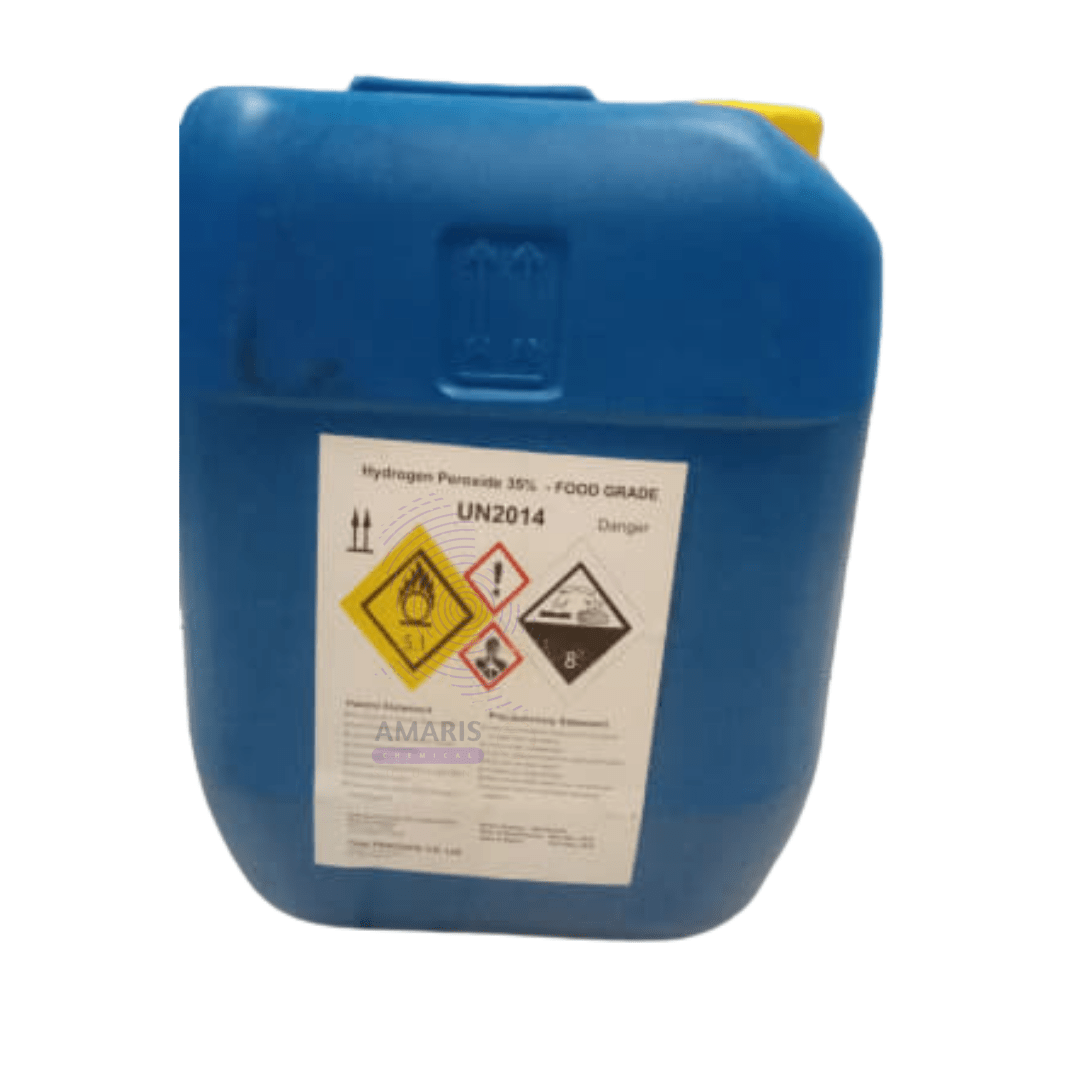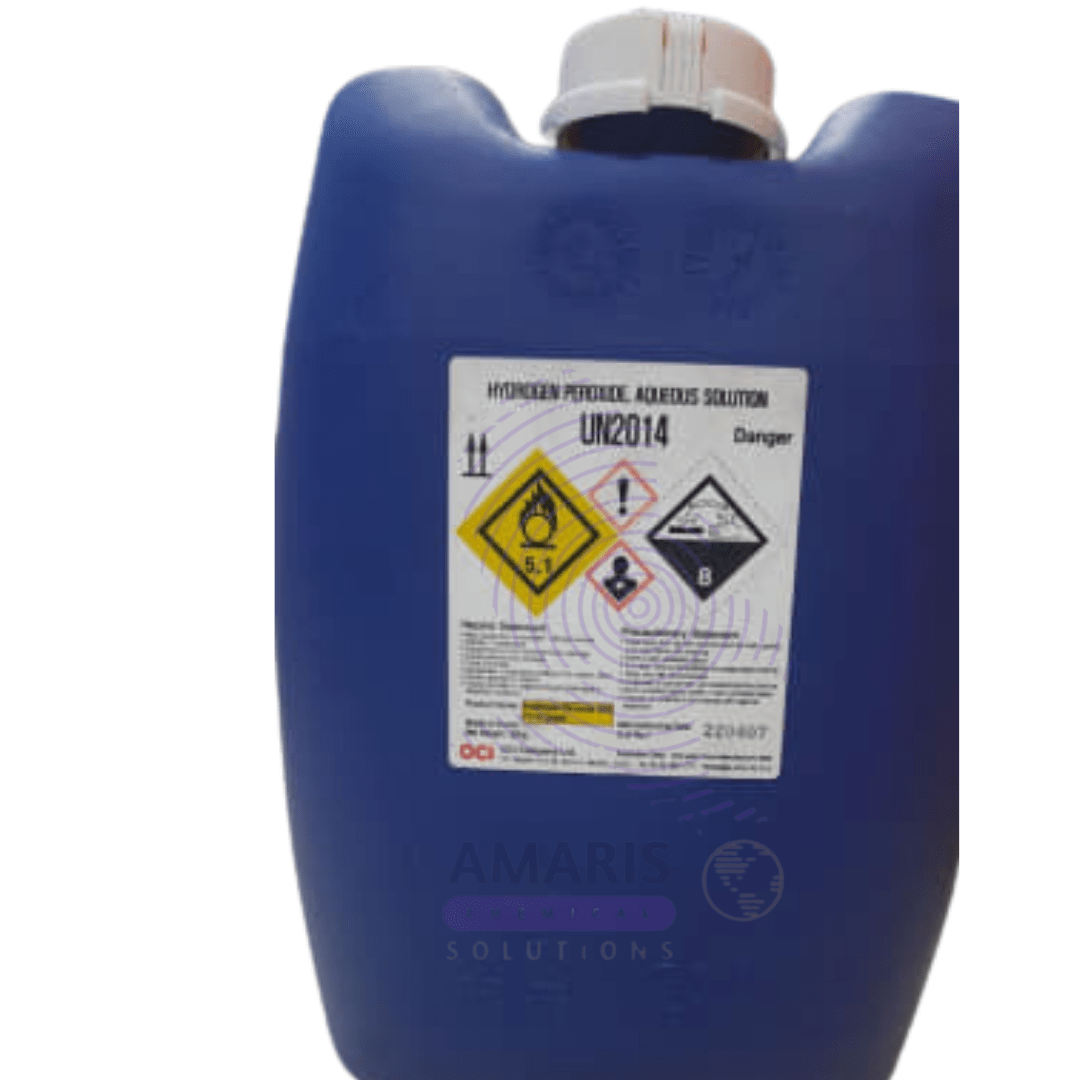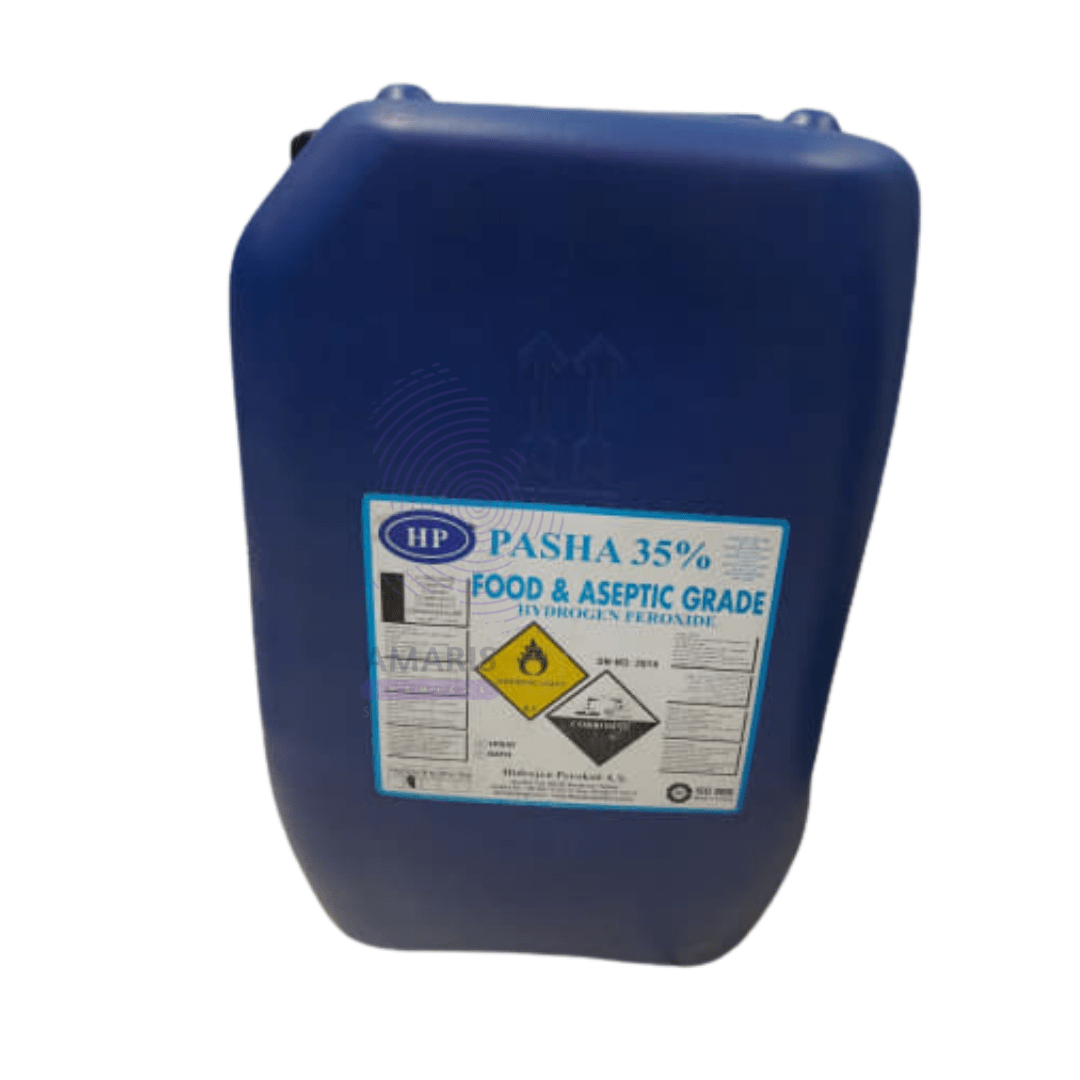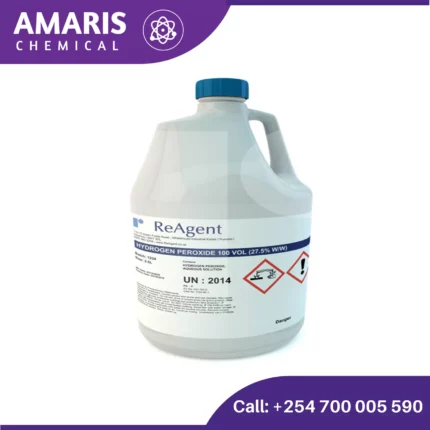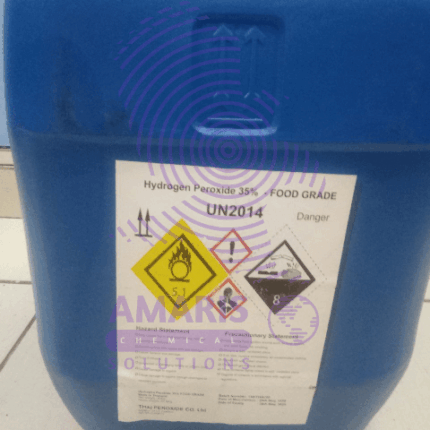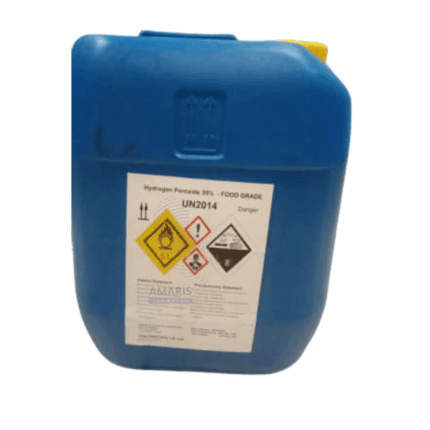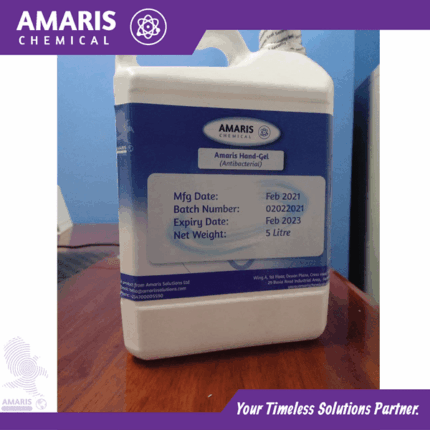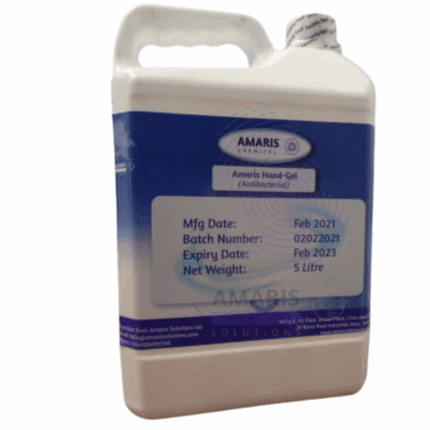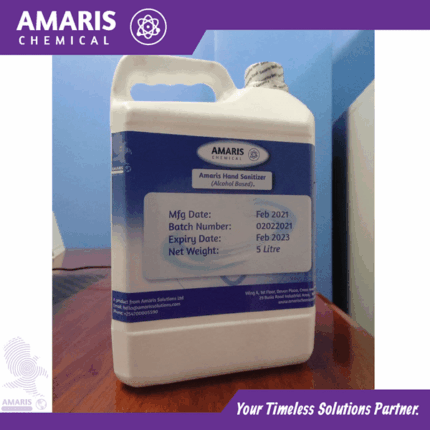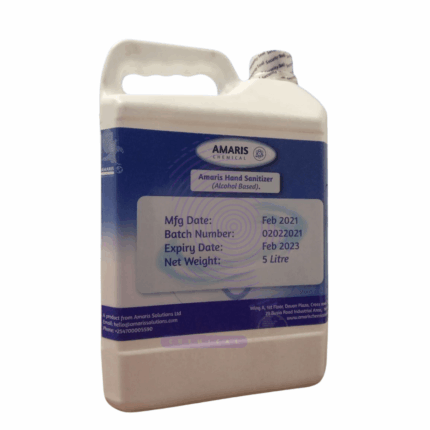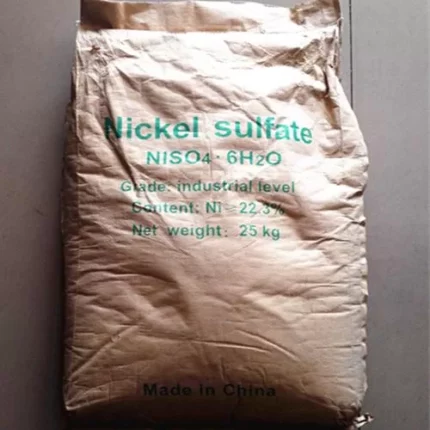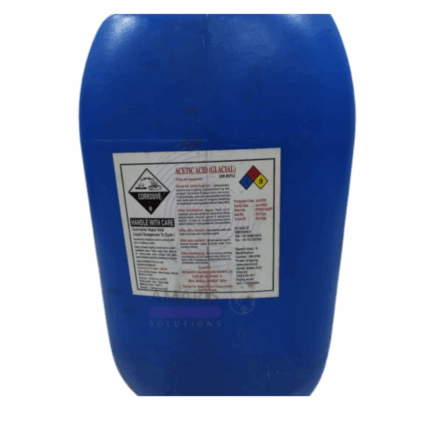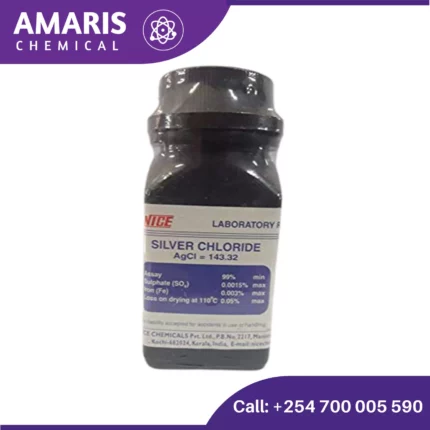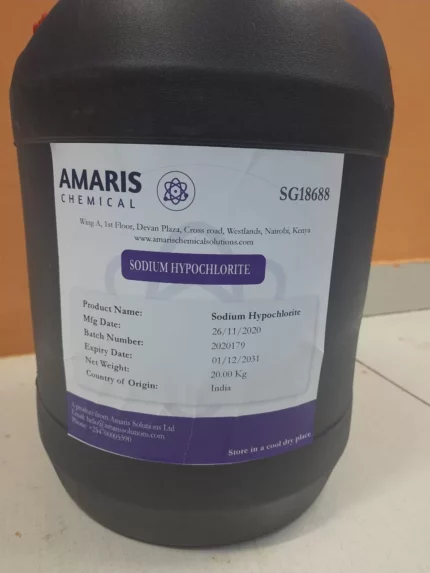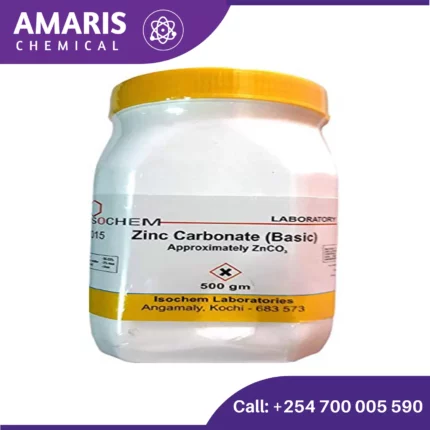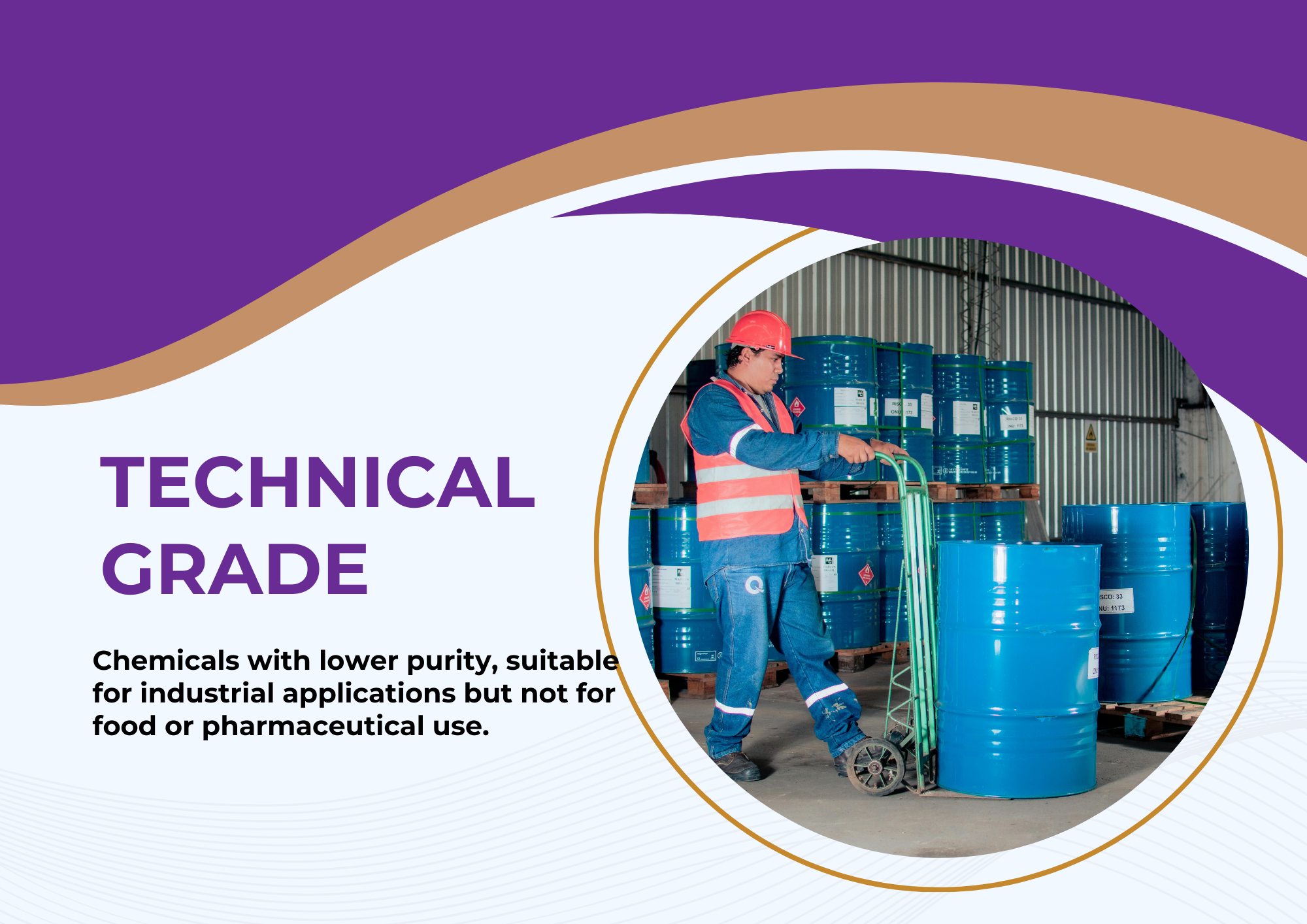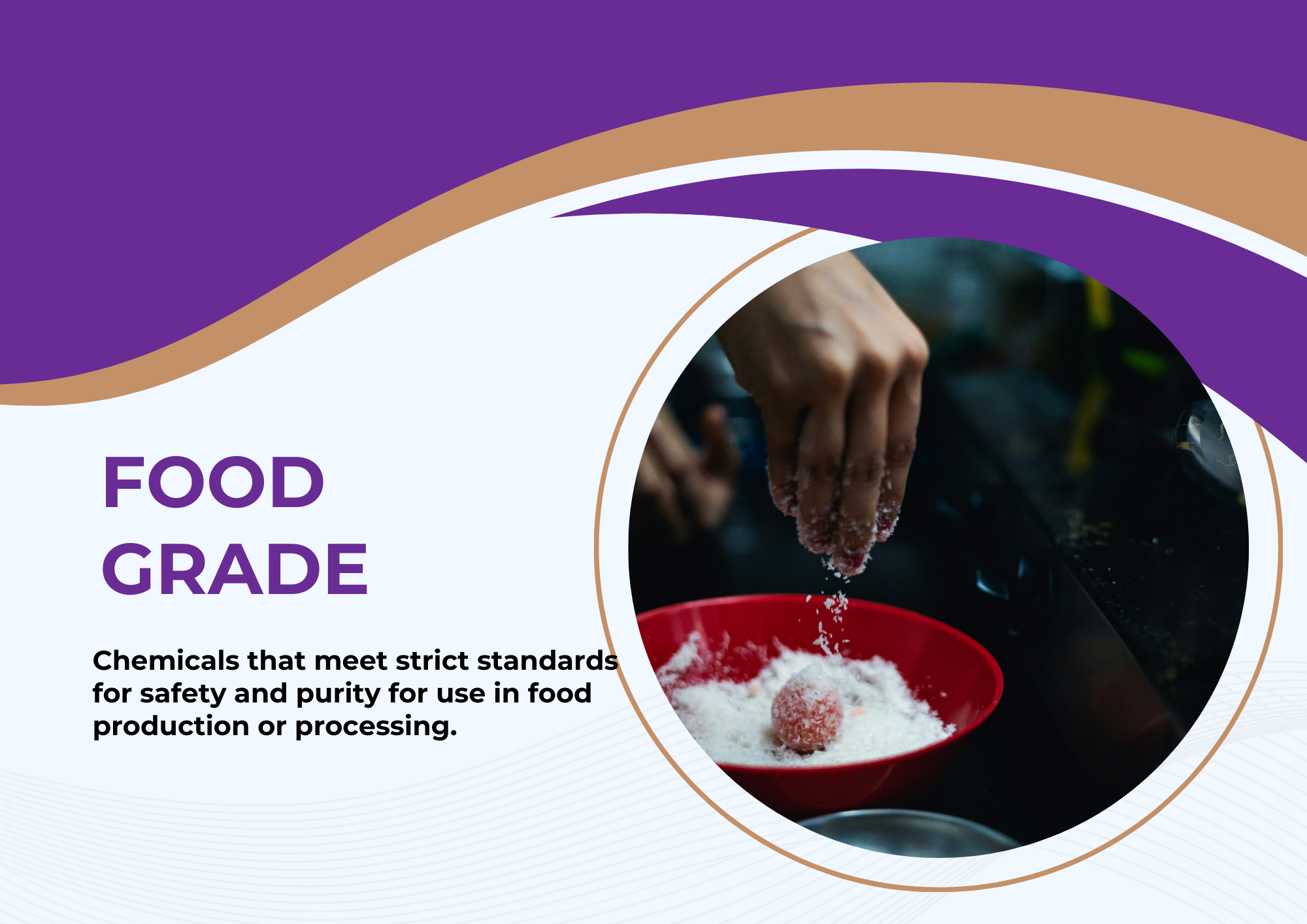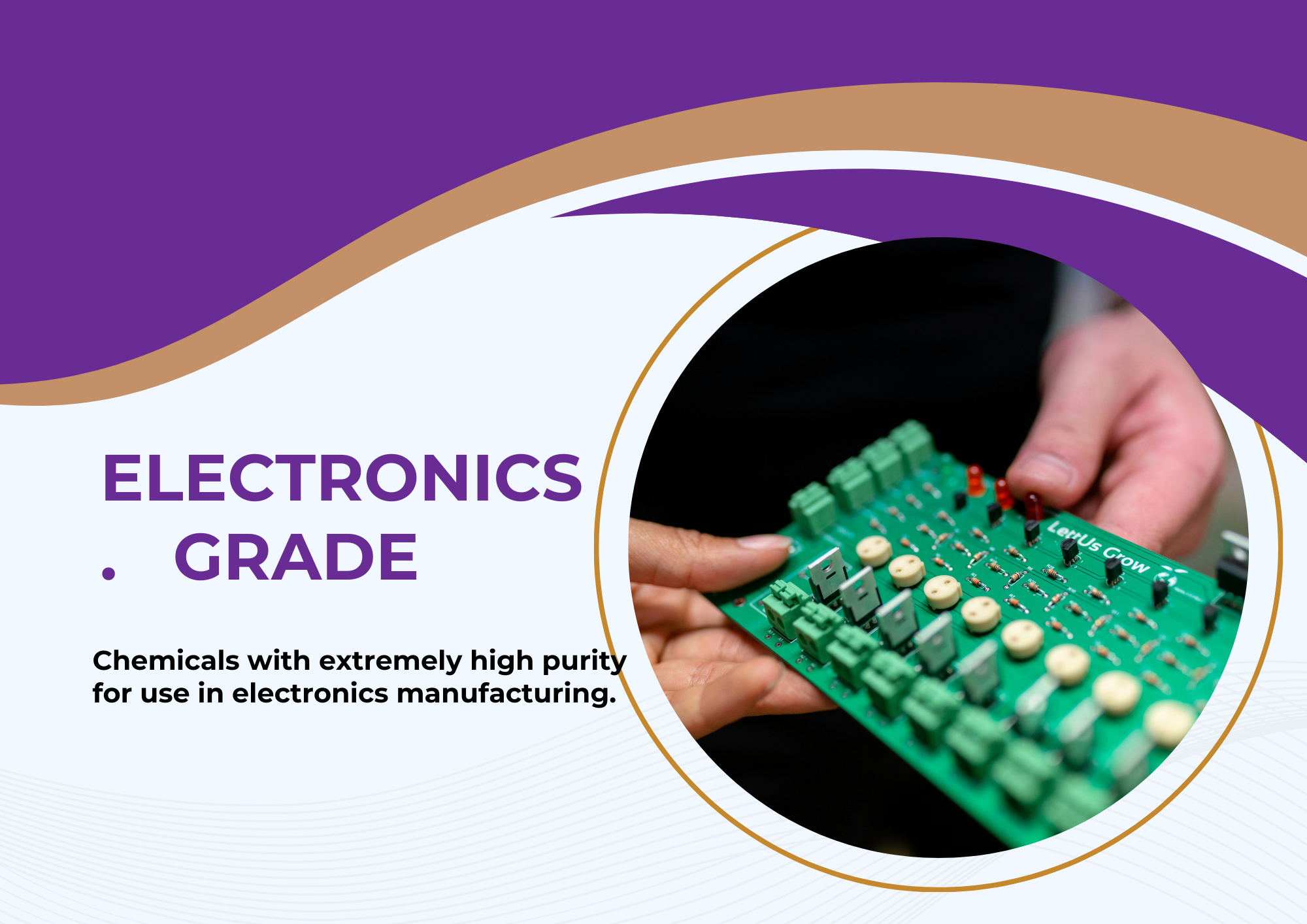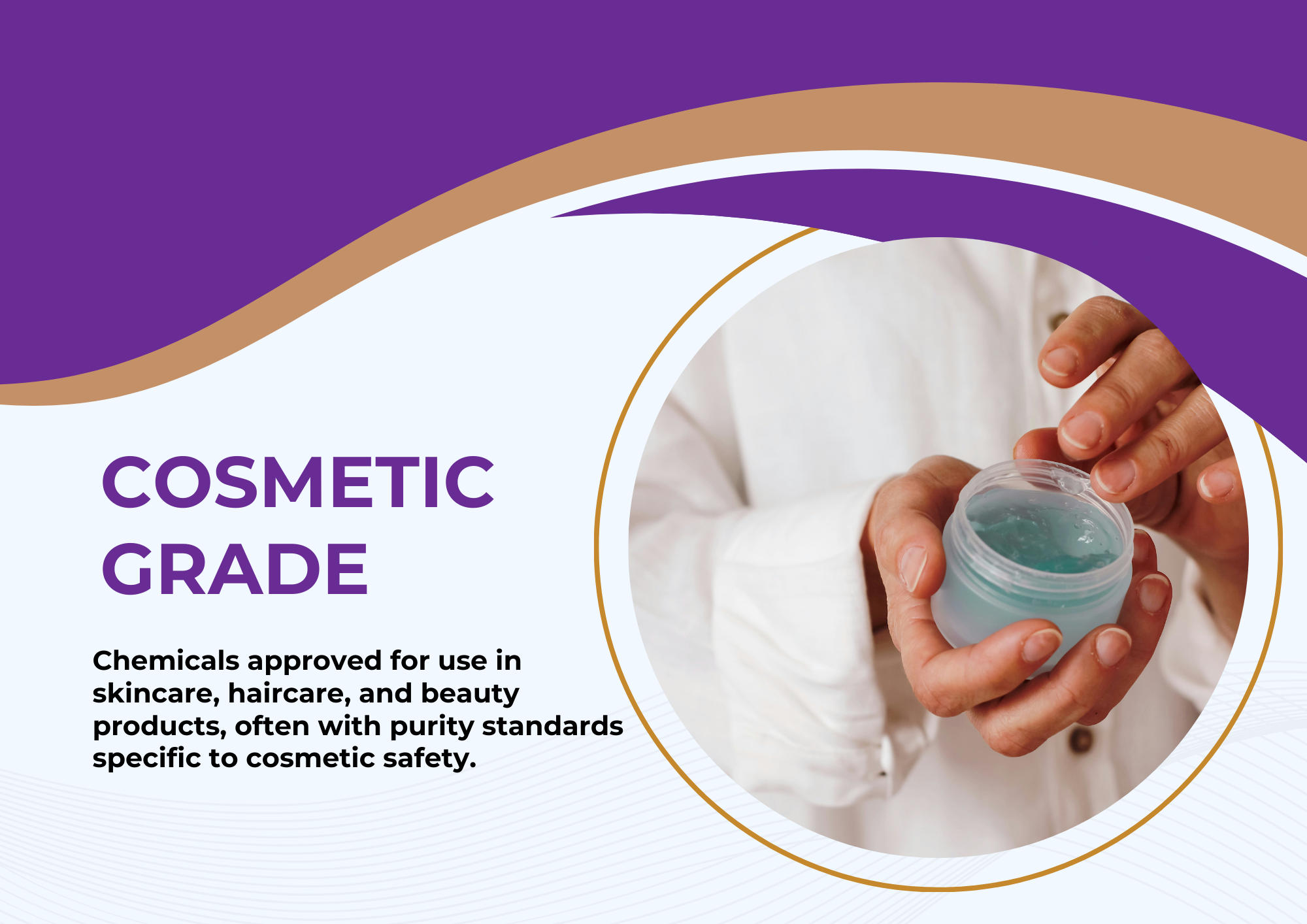“Calcium hypochlorite granules (chlorine)” has been added to your cart. View cart
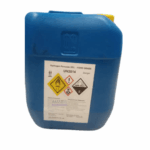
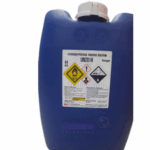
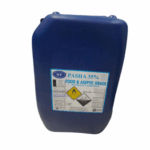
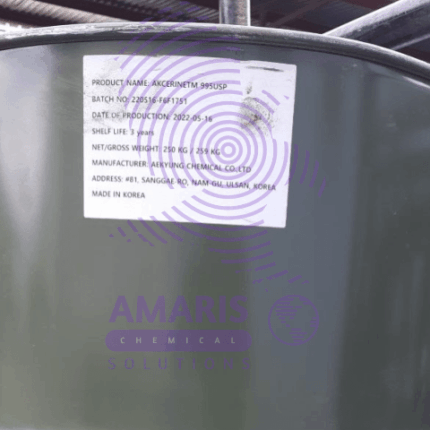
Glycerin 250kg Drum USP
KSh56,000.00 Original price was: KSh56,000.00.KSh55,000.00Current price is: KSh55,000.00.
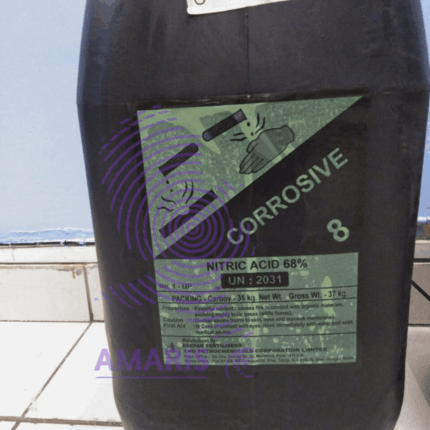
Nitric Acid 68% conc 35kg
KSh9,000.00 Original price was: KSh9,000.00.KSh8,500.00Current price is: KSh8,500.00.
Hydrogen Peroxide 50%
KSh7,500.00 Original price was: KSh7,500.00.KSh6,900.00Current price is: KSh6,900.00.
Hydrogen peroxide is a chemical compound with the molecular formula H2O2. It is a colorless and odorless liquid, which appears slightly more viscous than water. Hydrogen peroxide is a powerful oxidizing agent, meaning that it readily releases oxygen atoms in chemical reactions. It is commonly used as a disinfectant, bleaching agent, and in the production of other chemicals. In its pure form, hydrogen peroxide is highly reactive and can be dangerous, but when properly diluted, it can be used safely for a variety of applications.
SKU:
ACS61835CHEM0
Categories: Antiseptics and Disinfectants, Bleaching Agent, Catalysts, Oxidizing Agents
Description
Hydrogen peroxide
- Disinfectant: Hydrogen peroxide can be used as a disinfectant for surfaces, cuts, and wounds. It is a powerful oxidizer and can kill a wide range of bacteria, viruses, and fungi.
- Teeth whitening: Hydrogen peroxide is a common ingredient in many teeth whitening products. It can help remove stains and brighten teeth.
- Cleaning agent: Hydrogen peroxide can be used as a cleaning agent for various household surfaces. It is effective at removing stains, grime, and dirt.
- Hair lightening: Hydrogen peroxide can be used to lighten hair. It is commonly used as a DIY hair dye or highlighter.
- Laundry booster: Hydrogen peroxide can be added to laundry to boost the effectiveness of regular detergents. It can help remove stains and brighten fabrics.
- Mouthwash: Hydrogen peroxide can be used as a mouthwash to kill bacteria in the mouth and freshen breath.
- Gardening: Hydrogen peroxide can be used to kill fungus and bacteria in gardening. It can also be used to oxygenate the soil and help plants grow.
Shipping & Delivery
You may also like…
Hydrogen Peroxide 2,5litres extra pure
Hydrogen peroxide is a chemical compound with the molecular formula H2O2. It is a colorless and odorless liquid, which appears slightly more viscous than water. Hydrogen peroxide is a powerful oxidizing agent, meaning that it readily releases oxygen atoms in chemical reactions. It is commonly used as a disinfectant, bleaching agent, and in the production of other chemicals. In its pure form, hydrogen peroxide is highly reactive and can be dangerous, but when properly diluted, it can be used safely for a variety of applications.
Hydrogen peroxide 35% food grade
Hydrogen peroxide is a chemical compound with the molecular formula H2O2. It is a colorless and odorless liquid, which appears slightly more viscous than water. Hydrogen peroxide is a powerful oxidizing agent, meaning that it readily releases oxygen atoms in chemical reactions. It is commonly used as a disinfectant, bleaching agent, and in the production of other chemicals. In its pure form, hydrogen peroxide is highly reactive and can be dangerous, but when properly diluted, it can be used safely for a variety of applications.
Related products
Hand Gel
Rated 5.00 out of 5
Hand Sanitizer
Rated 4.75 out of 5
Hydrazine Food Grade
Nickel Sulphate [NiSO4(H2O)6]
Nickel sulfate, also known as nickel(II) sulfate or just nickel sulfate, is a chemical compound with the formula NiSO₄. It is a crystalline solid that is highly soluble in water. Here are some key points about nickel sulfate:
- Chemical Formula: NiSO₄
- Appearance: Nickel sulfate usually appears as a green or blue crystalline solid, depending on its hydration state.
- Hydrates: It forms several hydrates, the most common being the hexahydrate (NiSO₄·6H₂O), which is blue in color.
- Solubility: It is highly soluble in water, which makes it easy to dissolve in aqueous solutions.
- Applications:
- Electroplating: Nickel sulfate is commonly used in electroplating to apply a layer of nickel onto metals.
- Catalysis: It serves as a catalyst in certain chemical reactions.
- Ink Manufacturing: It is used in the production of ink.
- Battery Manufacturing: Nickel sulfate is used in the production of rechargeable batteries, particularly nickel-cadmium batteries.
- Agriculture: It is sometimes used as a micronutrient in fertilizers for crops.
- Hazards: Nickel sulfate is toxic if ingested or inhaled in large amounts. Prolonged exposure can cause skin allergies or respiratory issues in sensitive individuals.
Nitric Acid 68% conc 35kg
Rated 5.00 out of 5
Nitric acid is a strong, highly corrosive mineral acid with the chemical formula HNO3. It is a colorless liquid that is soluble in water and can release nitrogen oxides when heated. Nitric acid is widely used in the manufacture of fertilizers, dyes, explosives, and other chemicals, as well as in the etching of metals and the purification of metals and semiconductors. It is also used in laboratory settings as a reagent for various chemical reactions.
Silver Chloride 25gm
Analytical Reagents, Antiseptics and Disinfectants, Biodegradable Surfactants, Electronic Chemicals, Microbiology and Cell Culture Reagents
Silver chloride (AgCl), with its characteristic white crystalline appearance, is a chemical compound with a rich history and interesting properties. Here's a breakdown of its key features, applications, and how it behaves in a laboratory setting:
Properties:
- Formula: AgCl
- Appearance: White crystalline solid
- Solubility: Very low solubility in water (known as a water-insoluble salt)
- Light sensitivity: Silver chloride darkens upon exposure to light, due to the conversion of silver ions (Ag⁺) to metallic silver (Ag).
Sodium Hypochlorite 10-12% (Jik)
Zinc Carbonate 500gm
Analytical Reagents, Antioxidants, Catalysts, Excipients, Fertilizers, Wastewater Treatment Chemicals
Zinc carbonate (ZnCO₃) is a white, odorless powder that occurs naturally as the mineral smithsonite. It’s used in various applications including as a pigment in paints, a filler in rubber, and as a dietary supplement. Chemically, it's known for its ability to decompose upon heating to release carbon dioxide and zinc oxide. In the medical field, it's employed in topical preparations to treat skin conditions. Overall, zinc carbonate is valued for its versatility and effectiveness across different uses.

